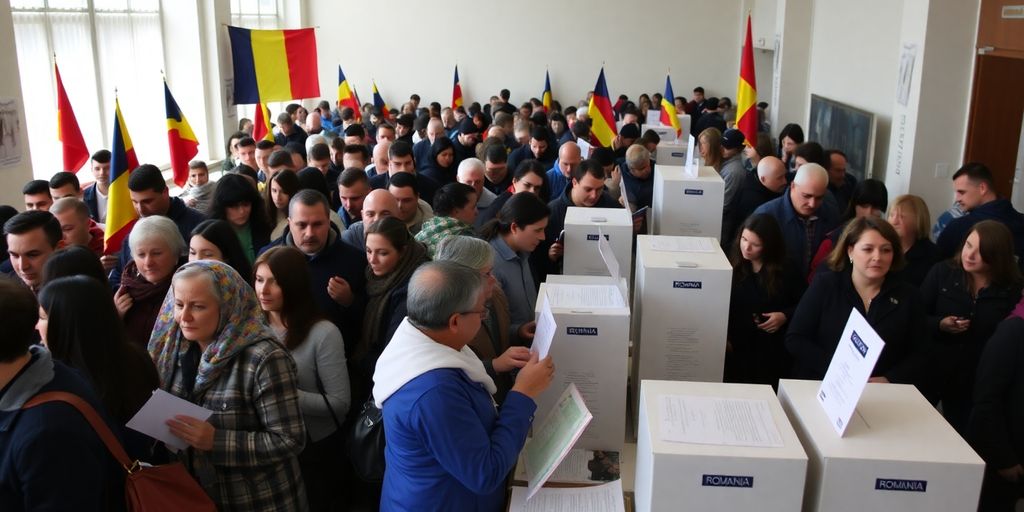Romania has announced new dates for its presidential elections, following the annulment of the previous vote due to allegations of foreign interference. The first round is set for May 4, 2025, with a runoff scheduled for May 18. This decision comes after a chaotic election cycle that saw far-right candidate Călin Georgescu unexpectedly leading the initial round, raising concerns about the influence of external forces on the electoral process.
Key Takeaways
- New presidential election dates: May 4 and May 18, 2025.
- Previous election annulled due to alleged foreign interference.
- Călin Georgescu, a far-right candidate, remains a significant contender.
- Ruling coalition aims to unify behind a single candidate to counter far-right influence.
Background of the Controversy
The initial round of the presidential election took place on November 24, 2024, where Călin Georgescu, a little-known far-right politician, emerged as the frontrunner. His unexpected success was attributed to a strong social media campaign, particularly on TikTok, which raised suspicions of manipulation and foreign influence, particularly from Russia.
Following his victory, the Romanian Constitutional Court annulled the election results on December 3, citing the need for a fair electoral process free from external interference. This decision has sparked significant debate within Romania, with many citizens questioning the integrity of the annulment and the motivations behind it.
The Ruling Coalition’s Strategy
In response to the electoral chaos, Romania’s ruling coalition, which includes the Social Democratic Party (PSD), the National Liberal Party (PNL), and the Democratic Alliance of Hungarians in Romania (UDMR), has decided to support a single candidate in the upcoming elections. This strategy aims to consolidate votes and prevent a far-right candidate from gaining power.
The coalition has announced that Crin Antonescu, a former leader of the National Liberal Party, will be their common candidate. Antonescu, who has been out of the political spotlight for nearly a decade, faces the challenge of appealing to a disillusioned electorate that has shown increasing support for populist and far-right candidates.
The Far-Right Challenge
Călin Georgescu’s rise in popularity reflects a broader trend in Romania and across Europe, where far-right parties are gaining traction amid public dissatisfaction with traditional political establishments. His campaign has resonated with voters frustrated by corruption and perceived ineffectiveness of mainstream parties.
Despite the annulment of the previous election, Georgescu remains a formidable contender. Analysts suggest that unless he is disqualified from running, he could potentially replicate his earlier success. His campaign has been characterized by anti-establishment rhetoric and skepticism towards NATO and the European Union, which could pose challenges for Romania’s foreign policy direction if he were to win.
Looking Ahead
As Romania prepares for the rescheduled elections, the political landscape remains tense. The ruling coalition must effectively communicate the risks associated with a far-right presidency, particularly in the context of Romania’s commitments to NATO and the EU. The upcoming election will not only determine the country’s leadership but also its geopolitical stance in a rapidly changing European landscape.
With the first round of voting just months away, all eyes will be on the candidates and their ability to sway an electorate that is increasingly polarized and wary of traditional political narratives.
Sources
- Romania to rerun presidential election on May 4, ruling coalition party says | Reuters, Reuters.
- Romania sets new election date, but risks same result – POLITICO, POLITICO.eu.
- Romania sets new date for presidential election, Бабель.
- Romania Sets New Date For Presidential Polls After Vote Controversially Annulled | Balkan Insight, Balkan Insight.






